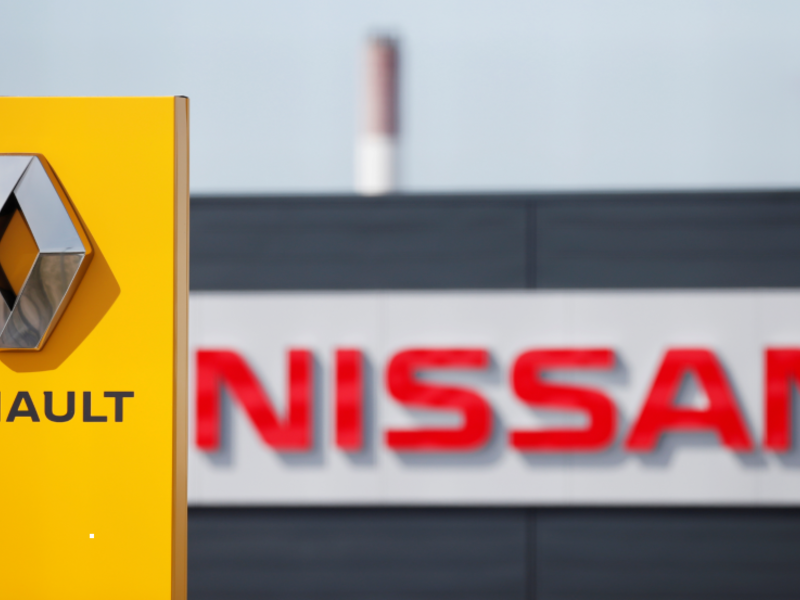
PARIS — Renault and its alliance partner Nissan have the resources to weather the coronavirus crisis and will roll out strategic plans as scheduled in mid-May, the automakers’ top executives said.
Renault Chairman Jean-Dominique Senard and Nissan CEO Makoto Uchida said in an interview with The Wall Street Journal that the three-year strategic plans for the automakers and alliance member Mitsubishi were needed to restore investors’ confidence.
Renault and Nissan have seen their sales fall and profits evaporate in the 18 months since the November 2018 arrest of Carlos Ghosn, who had led the alliance as chairman and was also serving as chairman and CEO at Renault.
“If the plan is not well explained and understood, then the share price is not going to recover and people will not believe that Nissan can get back on its feet,” Uchida said in the interview.
Since the beginning of the year, Renault’s share price has fallen by 58 percent while Nissan’s has fallen by 46 percent.
“The situation is quite clear: We can’t generate income because we can’t sell,” Senard said, as showrooms remained closed because of coronavirus restrictions.
The two automakers, which have also been forced to temporarily close a large part of their production sites, are considering shutting down activities and products that have little chance of becoming profitable, the Wall Street Journal said.
Renault and Nissan announced a realignment of alliance functions in January. Research and engineering work will be divided to avoid duplication, and plans to increase shared parts and body components will be accelerated. But the coronavirus outbreak has disrupted those plans for a fresh start.
Earlier, Uchida and Renault interim CEO Clothilde Delbos said there would be a thorough review of alliance operations and product plans, with “no taboos” as to what might be cut or postponed. Luca de Meo, the former CEO of Volkswagen’s Seat brand, will become Renault CEO in July, with Delbos as his deputy.
Citing sources familiar with the situation, the newspaper said Nissan could close factories in Spain, and the Renault brand could withdraw from the Chinese market, where Nissan is relatively strong.
Bloomberg reported in October that Nissan was gauging interest from potential buyers for its factories in Sunderland, England, and Barcelona, Spain, and that divesting one or both facilities was an option as Nissan’s market share in Europe has plummeted. Potential buyers could include Chinese automakers, sources told Bloomberg.
Renault returned to China in 2016, a market it had previously left to Nissan, when it opened a factory in Wuhan with Dongfeng Motor. Former CEO Ghosn had targeted annual sales of up to 800,000 vehicles. Its volume in China fell 17 percent to 179,571 in 2019, Renault said on Jan. 17 when it released global sales results for st year.
Renault and Nissan have sought to reassure investors about their liquidity. Renault can call on state-guaranteed credit that it has not yet requested and has a credit line of 3.5 billion euros ($3.8 billion), while Nissan can make use of a credit line worth around $12 billion.
Other automakers have either drawn on credit lines or set up new ones in an effort to prepare for the financial shock of the coronavirus pandemic.
“Their words are intended to be reassuring in a context where carmakers are being badly hit by the markets, and rightly so given the drastic drop in sales in the Covid-19 era,” Gregoire Laverne, European equity manager at Apicil Asset Management, said of the interview with Senard and Uchida.
Reuters contributed to this report